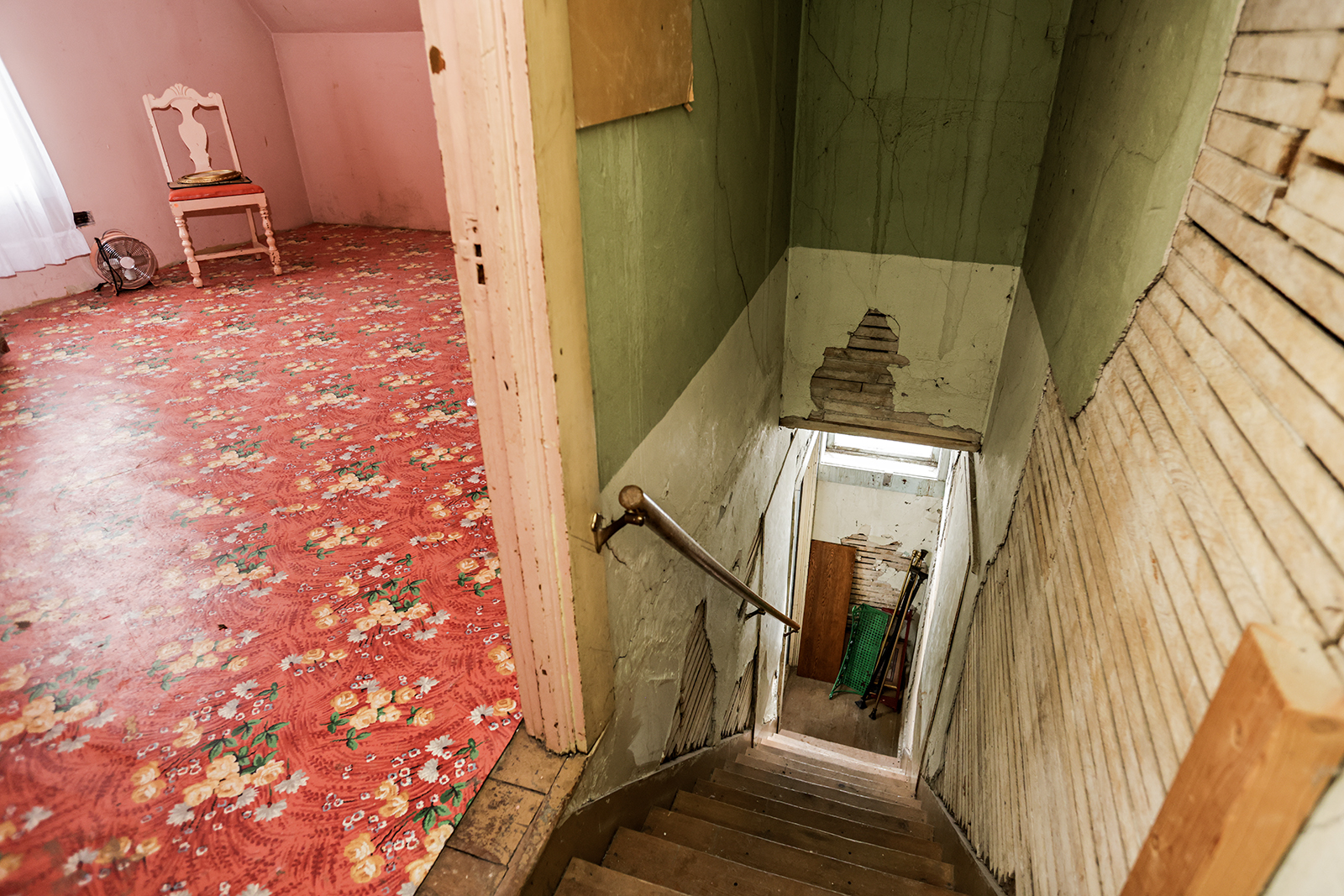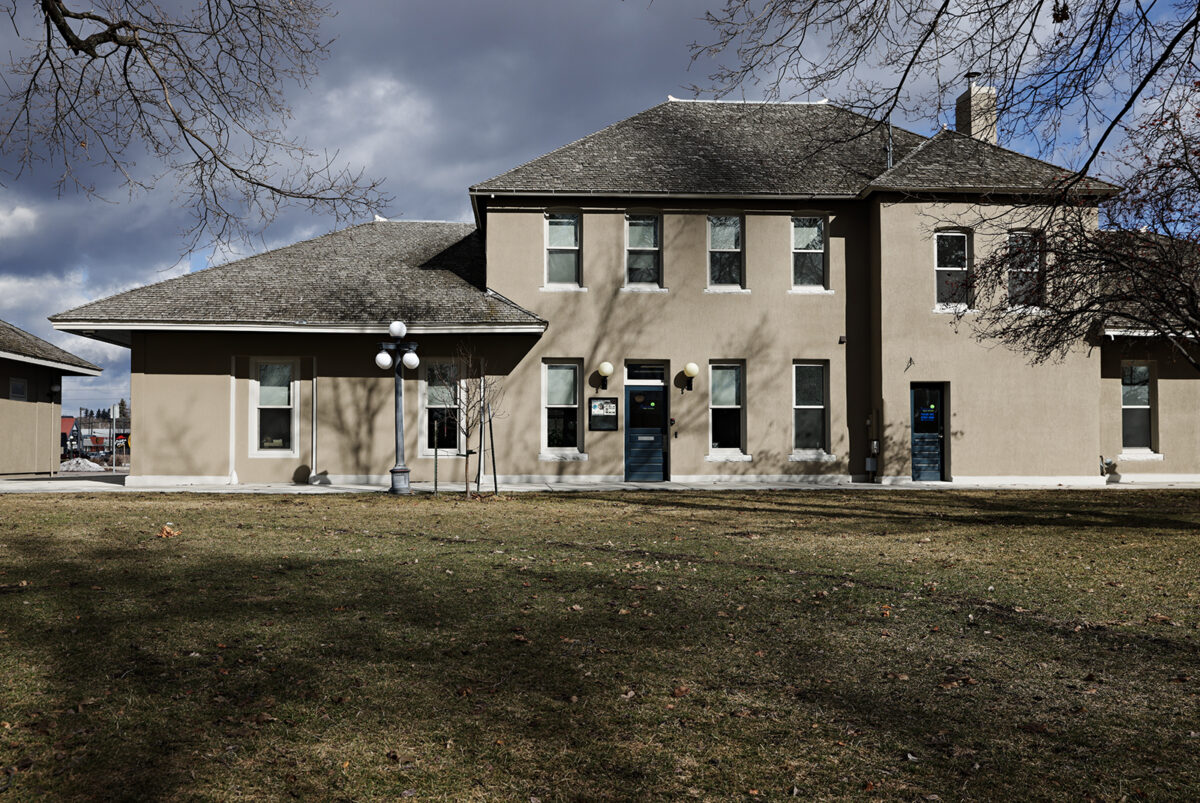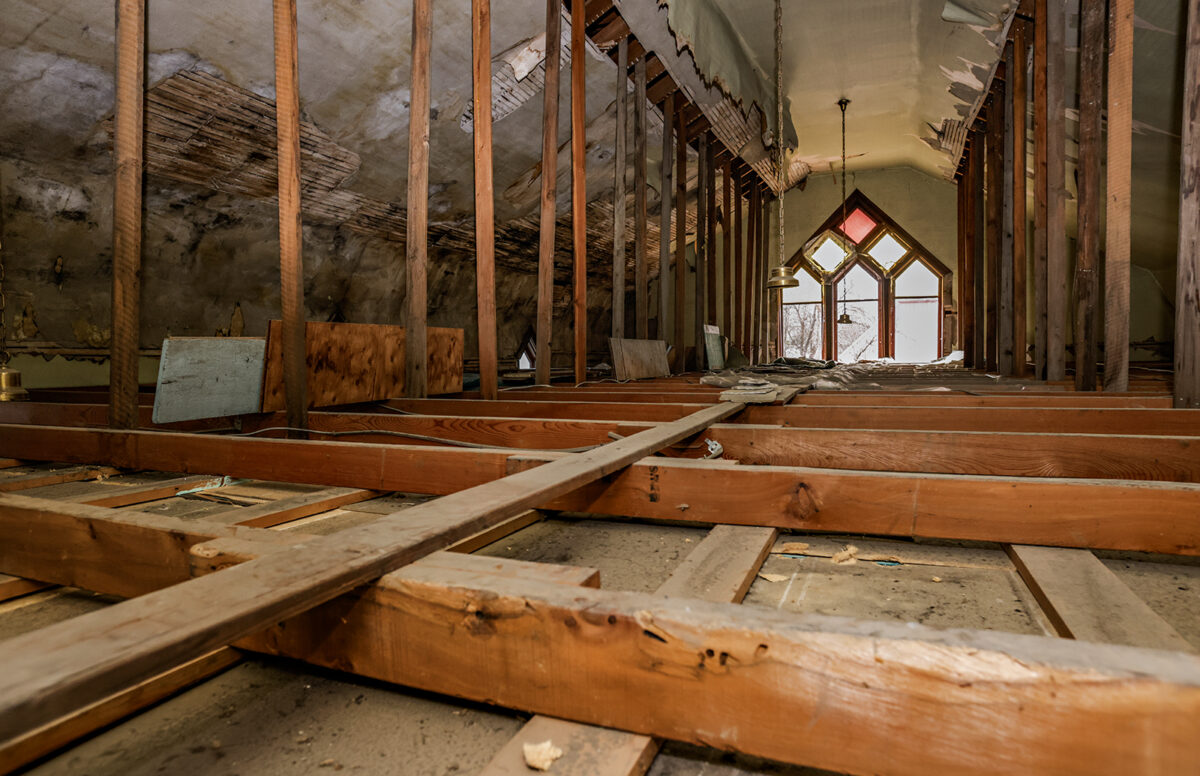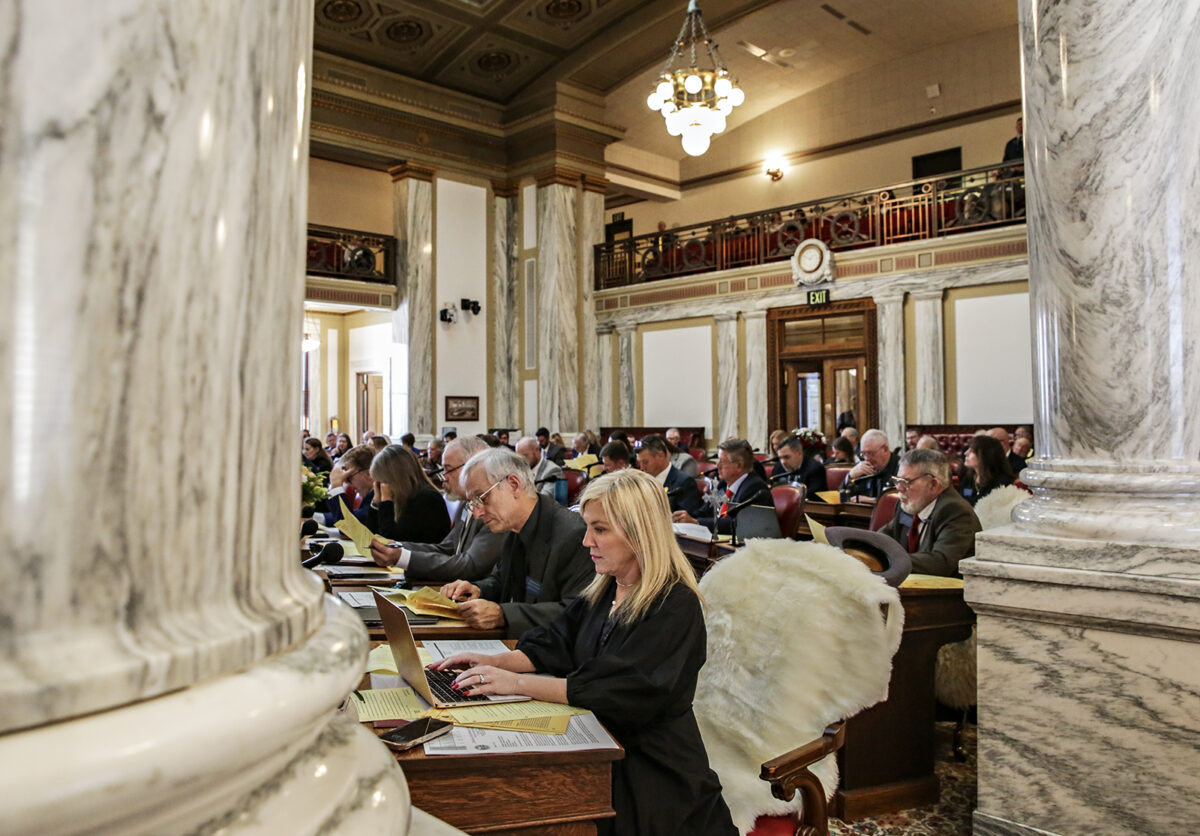Historic Preservation Grant Program Set to Fund Two Restoration Projects in Kalispell
Citing procedural issues and unfair use of tax dollars, the majority of Flathead Valley lawmakers voted against a bill funding the Montana Historic Preservation Grant program, which passed the House on Wednesday
By Denali Sagner
A program set to fund historic preservation projects across Montana — including two in Kalispell — passed the state House on Wednesday. Citing procedural unfairness and an unjustified use of taxpayer dollars, all but four lawmakers from the Flathead Valley voted against the bill.
House Bill 12 reauthorizes spending for the Montana Historic Preservation Grant (MHPG) Program, which was created by the Legislature in 2019 to aid public or private entities in the preservation of historic sites, historical societies or history museums. Each biennium, individuals, local governments, nonprofit organizations and businesses can apply to receive funds for repairs and renovations. Eligible buildings must be on a historic registry, contribute to a historic district or be more than 50 years-old with documented historical significance to a Montana community. In years past, applicants have been eligible for up to $500,000 per project with a 20% match of the total project cost required.
The first round of funds passed in 2019 authorized the construction of the Montana Heritage Center and doled out $400,000 for the refurbishment of the Marcus Daly Mansion in Hamilton and $400,000 for the Moss Mansion in Billings. In 2021, the state appropriated $5.5 million for historic preservation projects, including the Northwest Montana History Museum and Conrad Mansion in Kalispell and the Wheeler Property in Glacier National Park. In 2023, the state appropriated $11.3 million for dozens of projects, including the Miracle of America Museum in Polson and the Hockaday Museum of Art in Kalispell.
The program is administered by the Montana Department of Commerce (DOC), which, every two years, reviews applications and recommended grantees to the Legislature in order of priority. The Legislature evaluates grant applications and determines which projects can be approved, usually based on DOC’s recommendations and on the amount of funding set aside for the program.
This year, however, the Legislature saw far more applications and far fewer funds, prompting the Joint Appropriations Subcommittee (Section F) to amend the grant criteria, disqualifying dozens of projects. The committee disqualified any project that received funding in 2023, sought to add modern features to a historic building (such as security systems or elevators) or did not serve an explicit public purpose (such as renovating a historic office building with no public access). The committee also dropped the amount available to each project from $500,000 to $350,000. Compared to the $11.3 million set aside for MHPG in 2023, this session, MHPG was only allotted $5.1 million.
According to Rep. John Fitzpatrick, R-Anaconda, the bill’s sponsor, the state was able to dole out larger sums of money for MHPG and other programs in 2021 and 2023 due to a flush of cash from the American Rescue Plan Act. Now, the state is “back to a more normal funding cycle,” Fitzpatrick said.
If the Legislature followed past procedure and funded projects in the order recommended by DOC, Fitzpatrick said, it would have only been able to fund 17 projects, leaving 46 with no funds at all. Fitzpatrick and the Joint Appropriations Subcomittee introduced the amended criteria to spread the wealth, allowing the state to award smaller grants to around two dozen projects.
In Kalispell, funds are set to go towards the renovation of the historic Methodist church that houses Kalispell Community Thrift and the Kalispell Train Depot Building in Depot Park.

Yet Democrats and Republicans from the Flathead Valley criticized Fitzpatrick and the Joint Appropriations Subcommittee, saying the rules change was unfair to those who spent months preparing applications, only to find out they were no longer eligible.
Rep. Debo Powers, D-Whitefish, who voted against the bill on second reading but for it on third reading, said she understood introducing new criteria, but it should have been made clear to applicants before they applied.
“I actually did vote for it in appropriations because I was like, ‘This sounds great,’” Powers said.
Once she started receiving a barrage of emails criticizing the application process, she decided to vote against the measure on second reading.
“Some people just said, ‘Hey, it’s not fair that we went to all of this trouble to submit this grant when we wouldn’t have met the criteria,” she said. “I pay attention when people take the time to write about an issue. I pay attention to that. So, I was swayed by that.”
Rep. Ed Byrne, R-Bigfork, said his no vote was “a pushback on the process,” saying the committee “did a poor job looking at [the applications].”

Both Powers and Byrne also noted that there were no historic preservation projects in their districts.
In the Flathead Valley, only Rep. Courtenay Sprunger, R-Kalispell, and Rep. Lyn Bennett, R-Columbia Falls, voted for House Bill 12 on second reading. On third reading, Bennett was absent, and Powers and Rep. Braxton Mitchell, R-Columbia Falls, switched their votes from no to yes, joining Sprunger and Bennett.
The bill passed third reading with 33 Republicans and 38 Democrats in support.
Sprunger said, “Ensuring we preserve our history is a critical part of learning from the past and creating a better future.”
The Kalispell Train Depot Building, which is in Sprunger’s district, is an “iconic piece of our history” that is in dire need of funding to replace its failing roof, she said.
Fitzpatrick said the committee did not, in fact, change longstanding rules, noting that “the law is very explicit that the recommendations [from DOC] are advisory in nature only.”
“There is no particular set process. There’s some language in the statute, which is fairly generic,” he said.
Fitzpatrick, a moderate force among the state’s GOP caucus, said he believes Republicans from the Flathead Valley voted against the bill not because of procedural gripes, but “because we’re spending money.”
During a House floor hearing on the bill, Rep. Tom Millett, R-Marion, said, “I don’t know about you, but I think that if somebody, a community wants to restore or preserve something, then that is their right. They can do that, and they need to fund that themselves. Sorry, I just cannot justify spending state funds on this kind of thing.”

As the Legislature contends with rising property taxes and a dissatisfied public, Millett said the money should “go back to the communities, not to preserve a courthouse or a museum or anything else.”
Rep. Lukas Schubert, R-Kalispell, told the Beacon the Legislature needs to “respect the taxpayers” and use funds for tax relief rather than historic preservation projects.
Both Fitzpatrick and Sprunger noted that if lawmakers want to kill the program, they would need to bring a separate bill to take it out of state statute rather than just vote down House Bill 12.
“If you don’t like spending the money on these projects, that’s fine. I believe that would be a different bill, though,” Sprunger said.